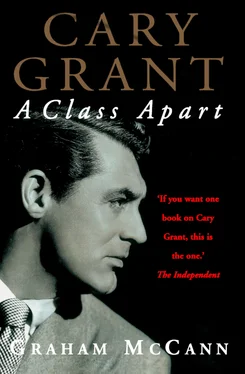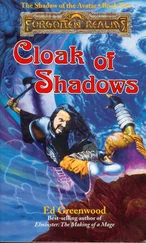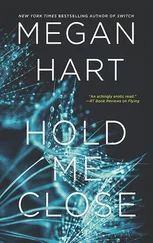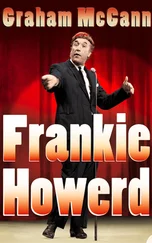A Class Apart
Fourth Estate
An imprint of HarperCollins Publishers 1 London Bridge Street London SE1 9GF
www.harpercollins.co.uk
This edition published in 1997
First published in Great Britain in 1996 by Fourth Estate
Copyright © 1996 by Graham McCann
The right of Graham McCann to be identified as the author of this
work has been asserted by him in accordance with the Copyright, Designs and Patents Act 1988.
A catalogue record for this book is available from the British Library.
All rights reserved under International and Pan-American Copyright Conventions. By payment of the required fees, you have been granted the nonexclusive, nontransferable right to access and read the text of this e-book on-screen. No part of this text may be reproduced, transmitted, downloaded, decompiled, reverse engineered, or stored in or introduced into any information storage and retrieval system, in any form or by any means, whether electronic or mechanical, now known or hereinafter invented, without the express written permission of HarperCollins e-books.
HarperCollins Publishers has made every reasonable effort to ensure that any picture content and written content in this ebook has been included or removed in accordance with the contractual and technological constraints in operation at the time of publication.
Source ISBN: 9781857025743
Ebook Edition © FEBRUARY 2016 ISBN: 9780007378722
Version: 2016-02-08
For Silvanaand in memory of my dear grandparents,Frank and Florence Geary
Cover
Title Page
Copyright
Dedication
Epigraph
PROLOGUE
BEGINNINGS
I Archie Leach
II A Mysterious Disappearance
III A Place to Be
CULTIVATION
IV New York
V Inventing Cary Grant
Hollywood
STARDOM
VII Never a Better Time
VIII The Intimate Stranger
IX Suspicions
INDEPENDENCE
X The Actor as Producer
XI The Pursuit of Happiness
XII The Last Romantic Hero
RETIREMENT
XIII The Real World
XIV The Discreet Celebrity
XV Old Cary Grant
Epilogue
Filmography
Keep Reading
Bibliography
Index
Acknowledgements
About the Author
Notes
About the Publisher
Everybody wants to be Cary Grant .
Even I want to be Cary Grant .
CARY GRANT
| Interviewer: |
Do you know the important people in the world today? |
| Two hour old baby: |
Well, some. I don’t know, I’m not sure . |
| Interviewer: |
You don’t know what you know? |
| Two hour old baby: |
No . |
| Interviewer: |
Do you know, for instance, Mickey Mantle? |
| Two hour old baby: |
No . |
| Interviewer: |
Queen Elizabeth? |
| Two hour old baby: |
No . |
| Interviewer: |
Winston Churchill? |
| Two hour old baby: |
Ah, no . |
| Interviewer: |
Fidel Castro? |
| Two hour old baby: |
No . |
| Interviewer: |
Pandit Nehru? |
| Two hour old baby: |
No . |
| Interviewer: |
Have you heard of Cary Grant? |
| Two hour old baby: |
Oh, sure! Everybody knows Cary Grant! |
Carl Reiner and Mel Brooks, ‘The Two Hour Old Baby’
A mask tells us more than a face .
OSCAR WILDE
Some might say they don’t believe in heaven
Go and tell it to the man who lives in hell .
NOEL GALLAGHER
Cary Grant was an excellent idea. He did not exist, so someone had to invent him. Someone called Archie Leach invented him. Archie Leach did not know who he was, but he knew what he liked. What he liked was what he came to think of as ‘Cary Grant’. He discovered that it was an extraordinarily popular conception. Everyone really liked the idea of Cary Grant. Archie Leach liked it so much that he devoted the rest of his life to its refinement.
It is easy to see why. Cary Grant was the man that most men dreamed of being, an exceptional man, the ‘man from dream city’. 1 He was that most unexpected but attractive of contradictions: a democratic symbol of gentlemanly grace. No other man seemed so classless and self-assured, as happy with the world of music-hall as with the haut monde , as adept at polite restraint as at acrobatic pratfalls. No other man was equally at ease with the romantic and with the comic. No other man seemed sufficiently secure in himself and his abilities to toy with his own dignity without ever losing it. No other man aged so well and with such fine style. No other man, in short, played the part so well: Cary Grant made men seem like a good idea. As one of the women in his movies said to him: ‘Do you know what’s wrong with you? Nothing !’ 2
There was nothing wrong with Cary Grant. His colleagues admired him. ‘Cary’s the only actor I ever loved in my whole life,’ said Alfred Hitchcock. 3 ‘If there were a question in a test paper that required me to fill in the name of an actor who showed the same grace and perfect timing in his acting that Fred Astaire showed in his dancing,’ said James Mason, ‘I should put Cary Grant.’ 4 To Eva Marie Saint, Grant was ‘the most handsome, witty and stylish leading man both on and off the screen.’ 5 James Stewart described him as a ‘consummate actor’, 6 and Frank Sinatra remarked that ‘Cary has so much skill he makes it all look so easy’. 7 Stanley Donen, the director, regarded him as ‘absolutely the best in the world at his job’: 8 ‘If you asked almost any man in those days who would he like to be, you’d often get the answer “Cary Grant” – much more often than you would get the answer “the President of the United States”.’ 9
There was nothing wrong with Cary Grant. Movie audiences loved to watch him. In the era when movies were made with and around stars, the initial attraction being the name above the title, no fewer than twenty-eight Cary Grant movies – more than a third of all those he made – played at New York’s Radio City Music Hall (the largest, most important and prestigious movie theatre at that time in the United States) for a total of 113 weeks – a long-standing record. 10 Again and again he was acknowledged as that theatre’s leading box-office attraction. One of his movies was the very first to earn $100,000 in a single week; another was the first to earn $100,000 in a single week at a single theatre. In the pre-eminent popular cultural medium of the twentieth century, Cary Grant was one of its most successful stars. His pulling-power stayed with him until the end of a movie career which lasted for over three decades; even in the year of his retirement, the Motion Picture Association of America voted him the leading box-office attraction. 11 There was no decline, no fall from fashion. He was an exceptionally and enduringly popular star. 12
There was nothing wrong with Cary Grant. Critics warmed to him. ‘We smile when we see him,’ wrote Pauline Kael, ‘we laugh before he does anything; it makes us happy just to look at him.’ 13 Richard Schickel suggested that ‘the only permissible response to him is bedazzlement’. 14 In 1995, Premiere magazine lauded him as, ‘quite simply, the funniest actor the cinema has ever produced’. 15 David Thomson judged him to be nothing less than ‘the best and most important actor in the history of the cinema’, in part because of his singular disposition, his ‘rare willingness to commit himself to the camera without fraud, disguise, or exaggeration, to take part in a fantasy without being deceived by it’, 16 and in part because of the extraordinary richness of the results of this commitment, an art mature and elaborate enough to embrace the ambiguities of a self shown in close-up.
Читать дальше












